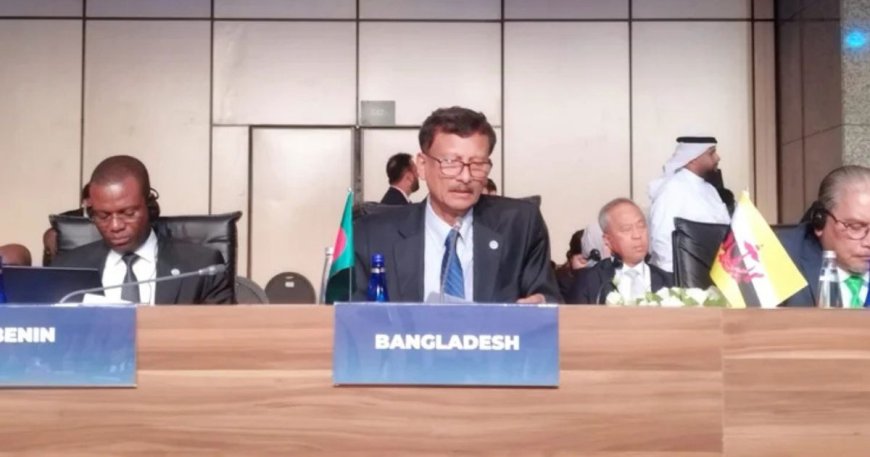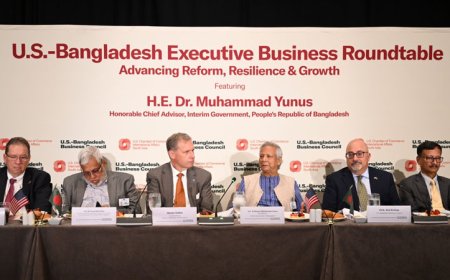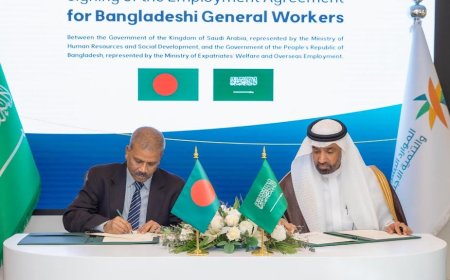Touhid calls on the international community to hold Israel responsible for its aggression against Iran
The foreign adviser also highlighted the ongoing Israeli assault on Gaza, calling it genocidal and noting that it has continued for more than 600 days.

Foreign Affairs Adviser Md Touhid Hossain on Saturday strongly condemned Israel’s unlawful military aggression against Iran and called on the international community to hold Tel Aviv accountable for actions that endanger both regional and global stability.
“Bangladesh demands an immediate end to such provocations and urges the international community to hold Israel responsible while working together to promote peace through diplomacy and adherence to international norms,” he said while delivering his written statement at the 51st session of the OIC Council of Foreign Ministers (CFM) in Istanbul.
Describing Israel’s attack on Iran as a “blatant act of aggression” and a “grave breach of international law, the UN Charter, and Iran’s sovereignty,” Touhid warned that “Israel’s reckless actions risk destabilizing the region and threaten global peace and security.”
Addressing the high-level ministerial gathering of the Organisation of Islamic Cooperation (OIC), the foreign adviser also drew global attention to Israel’s relentless assault on Gaza, labeling it genocidal and ongoing for over 600 days.
“Bangladesh unequivocally condemns Israel’s genocidal campaign in Gaza, which continues to cause the loss of innocent lives, destruction of civilian infrastructure, and systematic violations of international human rights and humanitarian law,” he asserted.
Calling for an immediate and permanent ceasefire in Gaza, Touhid reaffirmed Bangladesh’s support for “a credible, irreversible path to a two-state solution, with East Jerusalem as the capital of a sovereign and independent Palestine based on the 1967 borders.”
He urged the OIC to maintain unity in demanding accountability and justice through the International Court of Justice (ICJ) and the International Criminal Court (ICC), stressing that “our solidarity must evolve into strategic and sustained action.”
The foreign adviser also emphasized the urgent need for a sustainable resolution to the Rohingya crisis, warning that continued delays could escalate into a serious security threat for the region.
“The Rohingya crisis has become unsustainable. It is a potential threat multiplier that could endanger regional and global security,” he cautioned, underlining that “the ultimate solution lies in ensuring safe, voluntary, and dignified repatriation to their homeland in Rakhine State, Myanmar.”
Touhid called for increased diplomatic pressure on Myanmar and greater burden-sharing by OIC member states, while appreciating the ongoing legal proceedings at the ICJ and The Gambia’s active support.
He invited all OIC member states to attend the upcoming High-Level Conference on Rohingya Muslims, scheduled for 30 September at the UN headquarters.
Speaking on broader challenges facing the Muslim world, Touhid urged the OIC to take a more proactive role in mediation, peacebuilding, and humanitarian assistance in conflict zones like Yemen, Sudan, Libya, and Syria.
Welcoming the UN’s designation of 15 March as the International Day to Combat Islamophobia, Touhid emphasized that the OIC must “lead joint legal, educational, and media initiatives to counter hate, promote tolerance, and uphold the dignity of Islam and its followers.”
He also called for the OIC to strengthen its developmental agenda through investment in infrastructure, the digital economy, healthcare, food security, and skills development.
Highlighting Bangladesh’s proposal, Touhid presented “a cooperative framework for contract farming and viable business models to enhance food security among member states.”
On climate change, he proposed launching an OIC Climate Resilience Initiative and establishing an OIC Innovation Network to engage youth and researchers in addressing future challenges.
Touhid also outlined Bangladesh’s expanding role within the OIC, citing the country’s recent accession to the OIC Anti-Corruption Convention and the Labour Centre Statute, as well as the establishment of a permanent mission to the OIC.
He briefed the council on Bangladesh’s ongoing political transition under the interim government led by Nobel Peace Laureate Prof Muhammad Yunus.
“At this historic moment, we believe that the solidarity of OIC member states is crucial in ensuring a successful, peaceful, and people-centered transition in Bangladesh,” he concluded.
Touhid called upon member states to strengthen the OIC’s role as a transformative force and reaffirm “our collective commitment to justice, equity, and unity.”
What's Your Reaction?






















































































